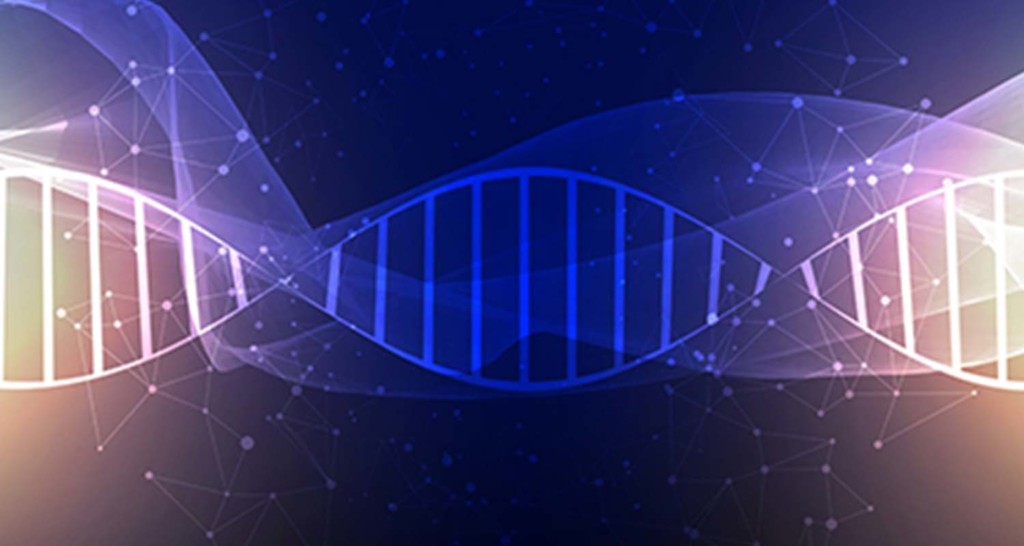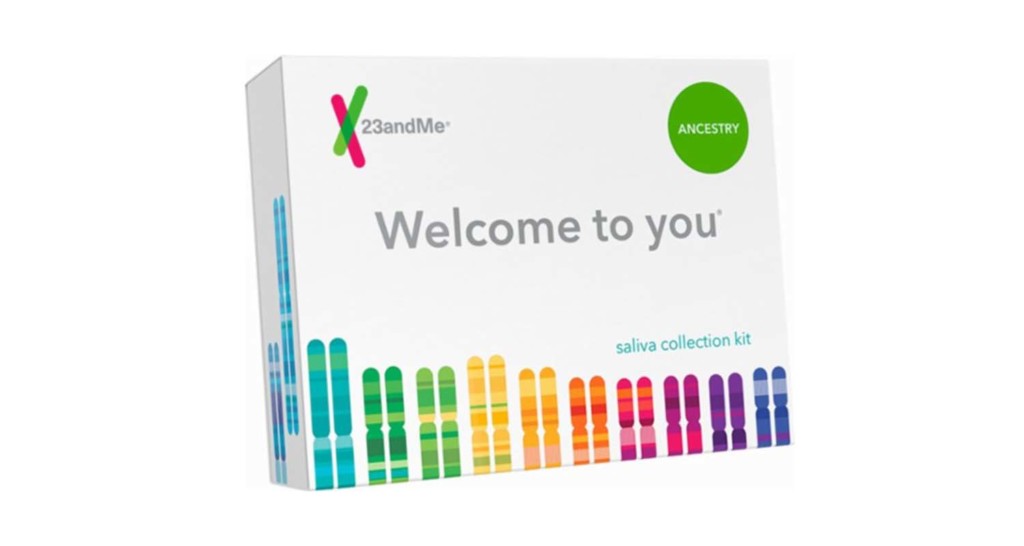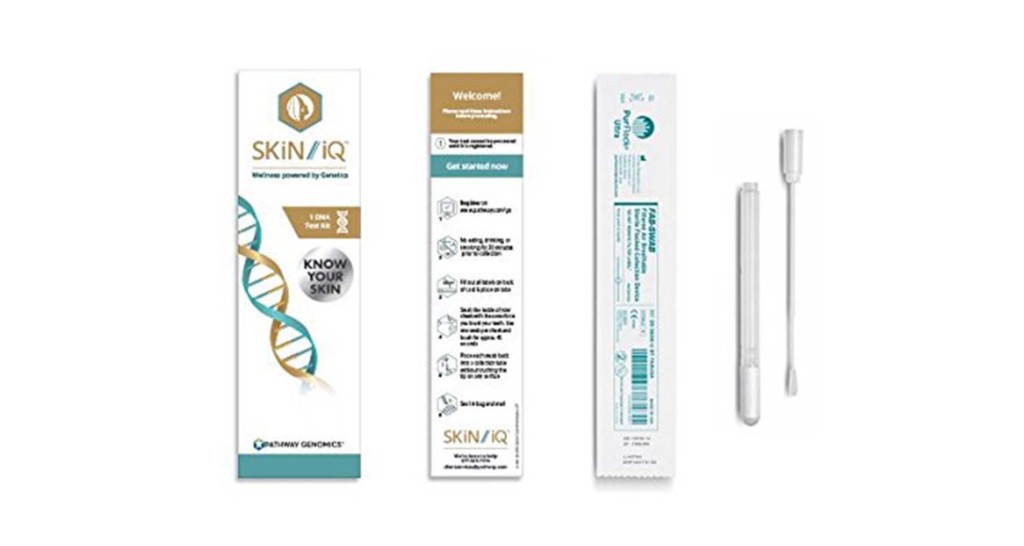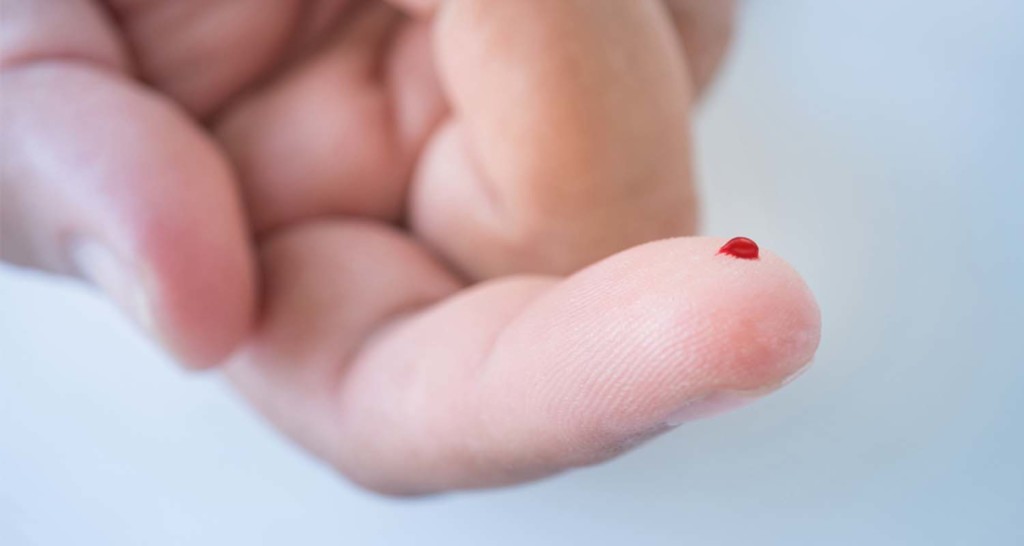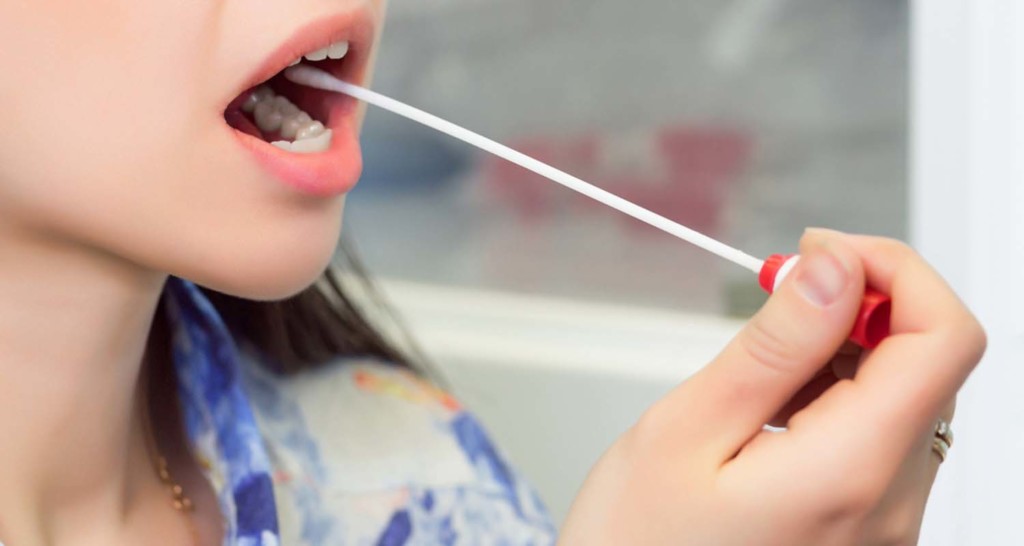
[tldr]
- At-home DNA testing kits analyze your genetic information to tell you your risk for developing certain serious conditions like Alzheimer’s and cancer.
- The tests are easy to do — you receive the kit in the mail, and collecting a sample usually involves spitting into a test tube. You then seal it up and mail it back.
- Home genetic tests can be a great tool in your biohacking arsenal — if you know you’re more likely to develop cancer, then you can take specific steps to lower your chances of developing it.
- Discover the pros and cons of some of the most popular home DNA tests on the market.
[/tldr]
What if you could take a test at home that could tell you your risks for developing serious illnesses like Alzheimer’s or cancer? That’s now a possibility with at-home DNA testing kits that analyze your genetic information. A growing number of these kits promise to reveal everything from your ancestry, to your genetic predispositions to certain diseases, to what you should be eating based on your genes. Demand for DIY genetic tests is expected to grow from $99 million in 2017 to $310 million in 2022. Read on to find out if you should try one, and the best tests on the market.
First things first: What are genes?
Your body contains more than 30 trillion cells,[ref url=”https://www.ncbi.nlm.nih.gov/pubmed/23829164″] and each of these cells houses tens of thousands of segments of DNA called genes. Genes are passed down from parent to child, and they tell your cells how to act and what characteristics to express. So if you’re tall and your mother is tall, it means the genes you inherit from her are telling your cells to make the cartilage in your bones grow.[ref url=”https://ghr.nlm.nih.gov/primer/traits/height”]
How do at-home genetic tests work?
Fun fact: All humans share nearly identical genes — it’s just the slight variation in them that makes each of us unique.[ref url=”https://www.sciencedaily.com/releases/2002/12/021220080005.htm”] These differences in DNA are called single nucleotide polymorphisms (SNPs, pronounced “snip”) — gene mutations that occur when one nucleotide (a building block of DNA) is replaced with another. Genetic tests scan your DNA sequences and use SNPs as markers for disease risk. They also compare your DNA sequences with a library of known genetic sequences (i.e. traits and conditions).
For instance, at-home DNA test 23andMe looks at some of the markers associated with a higher risk of developing certain serious conditions like Parkinson’s and Alzheimer’s, as well as the BRCA1/BRCA2 — breast and ovarian cancer — variant (Angelina Jolie famously underwent a preventative double mastectomy after she found out that she carried a mutation of the BRCA1 gene; she later had surgery to remove her ovaries.)
At-home tests are easy to do. You receive the kit in the mail, and usually spit into a test tube or swab the inside of your cheek to get a sample. You then seal it up and mail it back. Companies typically take 6 to 8 weeks to analyze and send you your results.
Should you use a home DNA testing kit?
DIY genetic tests can be a great tool in your biohacking arsenal. But don’t panic at your results — just because you carry a marker for a certain disease risk, it’s not a given you’ll get it. You can also make changes in your life to lower your chances of developing a condition. If you know you’re more likely to develop breast cancer, for instance, then you can take specific steps to lower your risk of getting it, like cutting down on alcohol or choosing to breastfeed if you have a baby.
That’s why these tests can be empowering and help you take charge of your future, says Tim Jackson, a functional endocrinologist and founder of healyourbody.org, in a Bulletproof Radio (iTunes) podcast episode.
“What I try to emphasize to people is that the SNPs have been around for thousands of years,” says Jackson. “It’s the stressors that we encounter — heavy metals, emotional stress — that cause these genes to be turned on or turned off.”
Keep in mind that at-home DNA tests can be pricey — most will set you back a couple of hundred dollars. There are also privacy concerns about how these companies use your genetic data — some sell your personal information to pharmaceutical and other third party companies.
Genetic tests and the MTHFR gene mutation
Genetic tests can tell you whether you’re one of the 40 percent of people who have something called the MTHFR gene mutation, which puts you at increased risk of heart disease, colon cancer, recurrent miscarriage, stroke, Alzheimer’s, and depression.[ref url=”https://www.ncbi.nlm.nih.gov/pubmed/23116396 “] [ref url=”http://clinchem.aaccjnls.org/content/clinchem/55/9/1742.full.pdf”]
The MTHFR gene provides instructions for making methylenetetrahydrofolate reductase (MTHFR), an enzyme which converts folic acid into methyl-folate, folate’s active form. Methyl-folate plays a key role in methylation, a chemical reaction in your cells and tissue that is fundamental to the smooth functioning of your body’s systems. It keeps inflammation under control, repairs and regenerates cells, tissue, and DNA, and helps your body get rid of toxins and heavy metals.
Someone with the MTHFR mutation produces 30 to 70 percent less methyl-folate than someone who doesn’t have the mutation, which puts them at a higher risk for various diseases. The good news is, there are ways to increase your methylation (such as treating candida and taking certain supplements). But first you need to know whether you carry the mutation or not. Enter genetic tests.
Related: The MTHFR Gene Mutation and How to Rewire Your Genetics
The best at-home genetic tests
23andMe
The most well-known of the tests, 23andMe offers two services: it uses your DNA to tell you about your family history (i.e. where your ancestors came from), and to analyze your risk of developing certain diseases, namely breast and ovarian cancer, celiac disease, Alzheimer’s, and Parkinson’s. You’ll wait around 8 weeks for the results. If you want more information about your genetic variants, such as whether you carry the MTHFR or other methylation gene mutations, you can upload your 23andMe raw data to a third-party site. MTHFR Support and LiveWello are good ones, and both cost $30 or less.
Pros:
- It’s a simple saliva test, although keep in mind it requires more saliva than what you may expect, so be prepared for a dry mouth during the process.
- It’s pretty affordable – $139 for a combined package to receive both your ancestry and your health data.
- Along with giving you info about genetic mutations, 23andMe also compiles more than 75 reports about your health and genetic traits. These run the gamut from telling you whether your genes predispose you to weigh more than average, if you’re more likely to have curly or straight hair, or if you carry the genetic variant for a condition like cystic fibrosis that you can pass on to your children.
Cons:
- Recently, 23andMe became the first direct-to-consumer genetic test to receive Federal Drug Administration (FDA) approval to screen for breast and ovarian cancer risk (the BRCA1/BRCA2 variant). But the company doesn’t find all the cancer-causing genes — far from it. 23andMe only detects 3 out of the more than 1,000 known BRCA mutations. “Most BRCA mutations that increase an individual’s risk are not detected by this test,” said Donald St. Pierre, acting director of the office of In Vitro Diagnostics and Radiological Health in the FDA’s Center for Devices and Radiological Health. “The test should not be used as a substitute for seeing your doctor for cancer screenings or counseling on genetic and lifestyle factors that can increase or decrease cancer risk.”
Pathway Genomics
Pathway Genomics offers a range of kits, including tests for cancer mutations, how you’re likely to react to various psychiatric medications, and the best diet and fitness plan based on your genes. Expect to shell out at least $100 per test (some, like the mental health screening test, cost $399). You can purchase the kits off the company’s website, or you can buy some of them on Amazon or at Walgreens and CVS. However, a few of the tests, like the cancer screening kit, have to be ordered by your doctor on your behalf.
Pros:
- The company offers a wide range of test kits that cover a number of concerns, from skin health, to diet and fitness advice, to telling you your risks of developing heart-related health conditions like coronary artery disease and myocardial infarction.
- Pathway Genomics requires a simple cheek swab for most of its tests.
- Since some of the kits need to be ordered by your doctor, he or she can help you interpret the results. This is especially helpful with the cancer screening and carrier status tests.
Cons:
- While it may be useful to have your doctor on hand to decipher the results, needing them to order a kit isn’t as convenient as ordering one directly yourself.
- The service is on the pricier side, and some of the kits will set you back $400 or more. Kits are priced individually, so costs can add up if you purchase more than one.
Dr. Amy Yasko’s Nutrigenomic Testing
This kit tests 30 SNPs (mutations) that Yasko says affect what she calls the “methylation cycle,” described as the biochemical pathway that’s responsible for methylation. According to the site, supporting this cycle with specific supplements and nutrients is key to overall health. The test requires a blood sample — you prick your finger and drop the blood onto a blood card. Results take 5 to 7 weeks to come back from the lab. To better understand your results, the site suggests finding a local physician using its online forum. The test doesn’t come cheap at $495.
Pros:
- If you’re curious about the MTHFR gene and methylation, this test is a good starting point.
- Reports are incredibly detailed and give you specific information about what supplements to take, dosage, and what foods to eat to support proper gene function.
Cons:
- If you’re squeamish about blood, the finger prick test could be a challenge. Make sure you’re sitting down while doing it, and if you start to get woozy, put your head between your legs.
- The kit is expensive.
ORIG3N
ORIG3N is like the hip younger cousin of 23andMe. The DNA testing startup offers a smorgasbord of tests — 21 in total — covering fitness, nutrition, beauty, and behavior. Ever wondered what makes you more special than others? The “Superhero” test can tell you if you’re a whiz at languages, or if you have the gene for a muscle protein that could make you the next Usain Bolt. The company also tests for specific conditions, like how strong are your joints, and what your booze tolerance is. Each test costs between $29 and $149, and no spitting or finger-pricking is required. All you need to do is swab your cheek and mail the results in a prepaid envelope. You’ll receive a report in about 4 weeks, which includes a list of your gene variants as well as tips on how to use the results to maximize your performance in everyday life.
Pros:
- The tests are very specific — if all you want to know is how well your body metabolizes food, you can order just the $49 metabolism test. This simplifies the process, and saves you the time of picking through a detailed report that covers health areas that don’t interest you.
- Swabbing the inside of your cheek is convenient and quick compared to spitting (some tests require a fair amount of saliva) or — eek — finger pricking.
- It can be affordable, if you only want one or two tests.
- There’s something for almost everyone — you can test whether you have what it takes to be an NFL star. If you’re a parent, the child development test explores your kid’s unique strengths and what activities and foods suit him or her best.
Cons:
- Costs can add up fast — it’s tempting to keep pressing “add to cart” when shopping since all the tests seem helpful in some way. But bear in mind you could end up coughing up a couple of hundred dollars when all is said and done.
- The company has had some negative press. A recent report from NBC claimed that ORIG3N was unable to tell the difference between human and dog DNA. And the startup was investigated by the federal government last year for allegedly selling health tests without legal certification.
